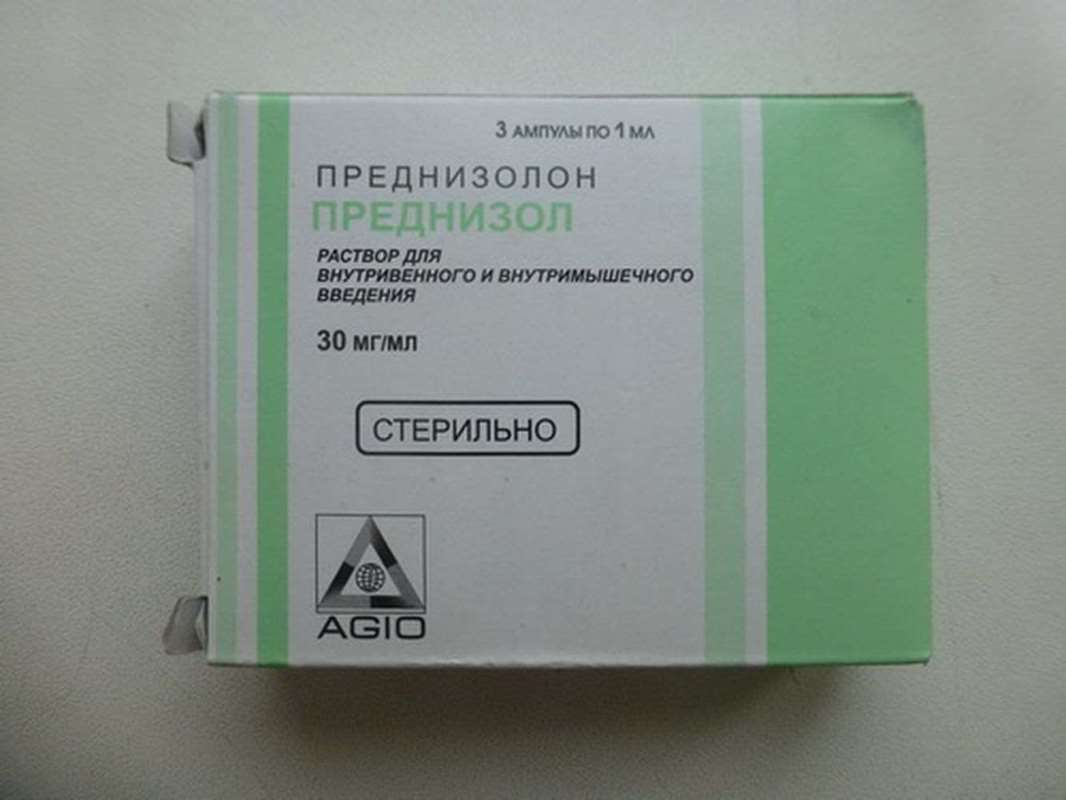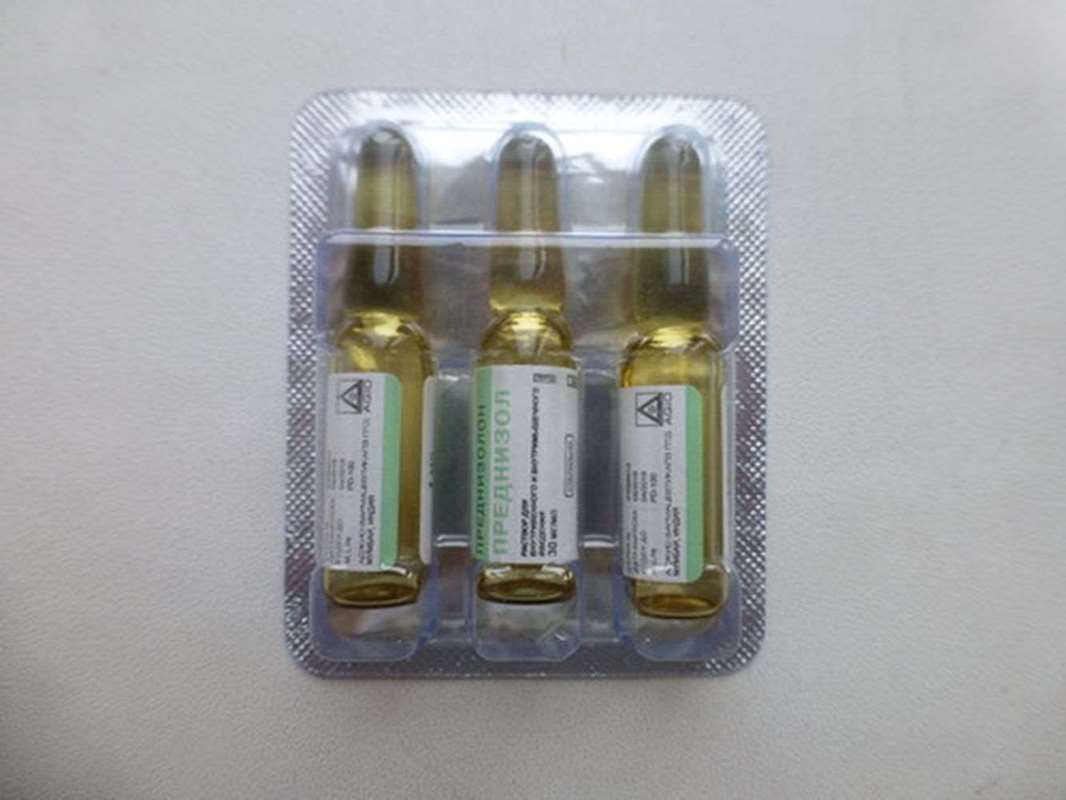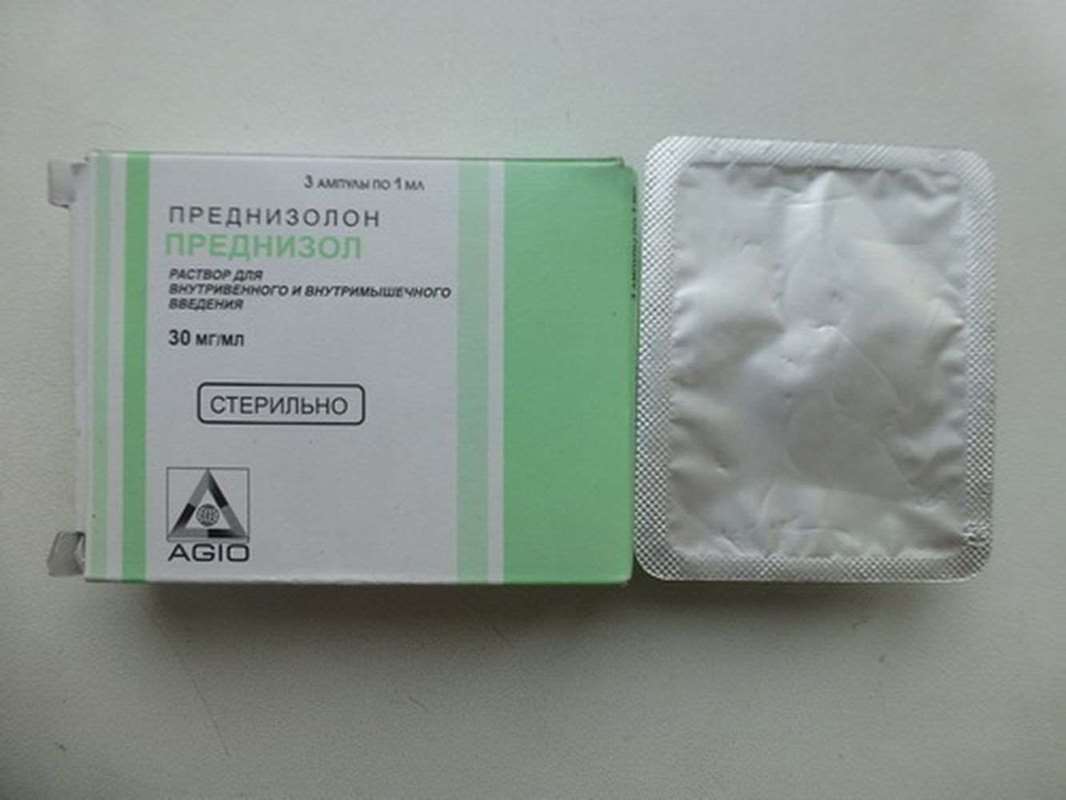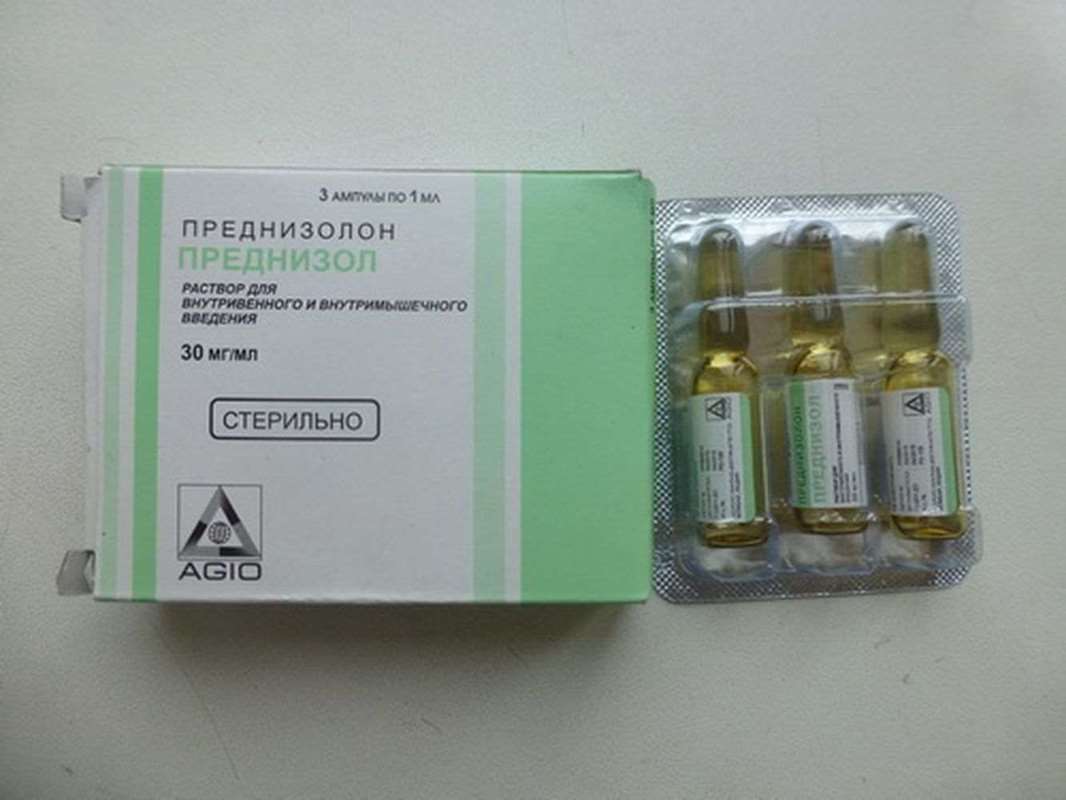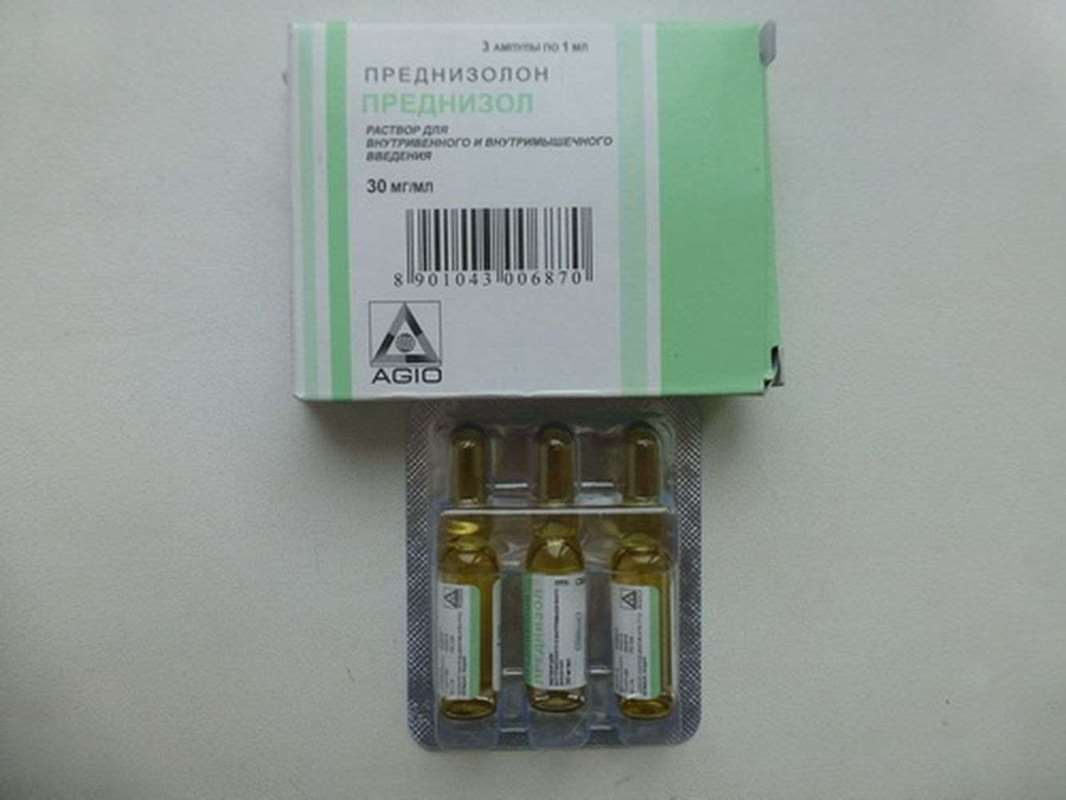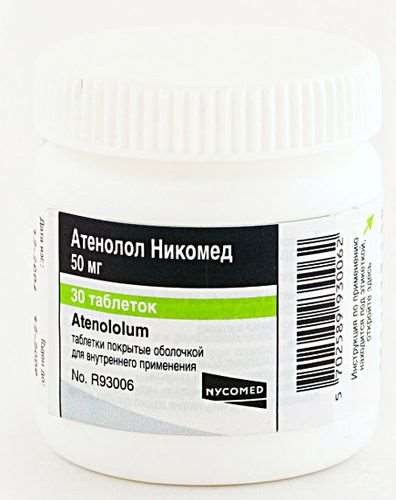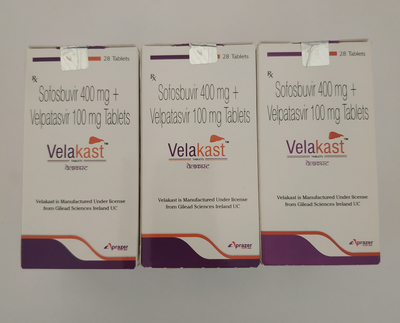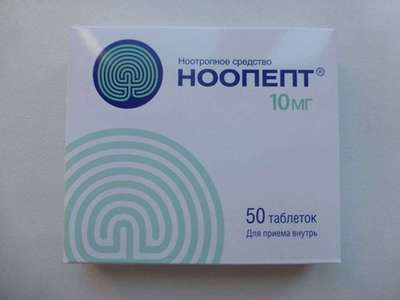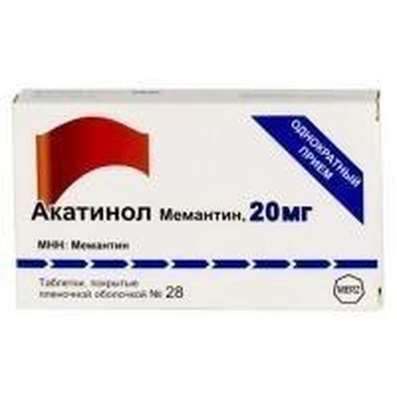Prednisolon - anti-inflammatory, anti-allergic, immunosuppressive.
Pharmacological properties
Pharmacodynamics.
Prednisolone Nycomed - a synthetic glucocorticosteroid preparation, dehydrated analogue of hydrocortisone. Has anti-inflammatory, anti-allergic, immunosuppressive effect, increases the sensitivity of the beta-adrenergic receptors to endogenous catecholamines.
Interacts with specific cytoplasmic receptors (receptors for glucocorticosteroids (GCS) in all tissues, particularly in many of the liver) to form a complex that induces the formation of proteins (including enzymes, to regulate vital cell processes).
Protein sharing reduces the amount of globulin in plasma, increases the synthesis of albumin in the liver and kidneys (with increase of albumin / globulin ratio) decreases protein synthesis and increases in muscle catabolism.
Lipid metabolism: increases the synthesis of higher fatty acids and triglycerides, redistributes fat (fat accumulation occurs mainly in the area of the shoulder girdle, face, abdomen), leads to the development of hypercholesterolemia.
Carbohydrate metabolism: increases the absorption of carbohydrates from the gastrointestinal tract; It increases the activity of glucose-6-phosphatase (increase of glucose from the liver into the blood); fosfoenolpiruvatkarboksilazy increases the activity and synthesis of aminotransferases (activation of gluconeogenesis); It contributes to the development of hyperglycemia.
Water-eletrolitny sharing delay sodium and water in the body, stimulate the excretion of potassium (mineralocorticoid activity) reduces the absorption of calcium from the digestive tract, reduced bone mineralization.
The anti-inflammatory effect is due to inhibition of the release of eosinophils and mast cell mediators of inflammation; lipokortinov inducing formation and reduce the number of mast cells that produce hyaluronic acid; with decreasing capillary permeability; stabilization of cell membranes (particularly lysosomal) membranes and organelles. Acts on all phases of the inflammatory process: inhibits prostaglandin synthesis for arachidonic acid level (Lipokortin inhibits phospholipase A2 suppresses liberatiou arachidonic acid inhibits the biosynthesis endoperekisey, leukotrienes promoting inflammation, allergies, etc.), Synthesis of "proinflammatory cytokine" (interleukin 1, tumor necrosis factor alpha, and others).; increases cell membrane resistance to various damaging factors.
Immunosuppressive effect is due to induced involution of lymphoid tissue, inhibition of lymphocyte proliferation (especially T-cells), suppression of B-cell migration and interaction of T and B lymphocytes, the inhibition of release of cytokines (interleukin-1, 2, gamma interferon) from lymphocytes and macrophages and a decrease in the formation of antibodies.
Antiallergic effect is due to a decrease of synthesis and secretion of mediators of allergy, inhibition of release from sensitized mast cells and basophils, histamine and other biologically active substances, reducing the number of circulating basophils, T- and B-lymphocytes, mast cells.; suppression of lymphoid and connective tissues, reduce the sensitivity of the effector cells to the mediators of allergy, inhibition of antibody production, changes in the immune response.
In obstructive diseases of the respiratory tract caused by the action of mainly the inhibition of inflammatory processes, preventing or reducing the severity of mucosal edema, reduction of eosinophil infiltration submucosal bronchial epithelium layer and deposition in the bronchial mucosa of circulating immune complexes, as well as braking and erozirovaniya desquamation mucosa. It increases the sensitivity of the beta-adrenergic receptors of the bronchi of small and medium caliber to endogenous catecholamines and exogenous sympathomimetic, reduces the viscosity of mucus by reducing its production.
It inhibits the synthesis and secretion of ACTH and the second - the synthesis of endogenous corticosteroids.
Hinders connective tissue reaction in the course of the inflammatory process and reduces the possibility of the formation of scar tissue.
Pharmacokinetics.
Ingestion prednisone is well absorbed from the gastrointestinal tract. The maximum blood concentration is reached after 1-1.5 hours after oral administration. Up to 90% of the drug binds to plasma proteins: transcortin (kortizolsvyazyvayuschim globulin) and albumin. Prednisolone is metabolized in the liver and kidneys and partly in other tissues, mainly by conjugation with glucuronic acid and sulfuric acid. The metabolites are inactive.
Excreted in the bile and in the urine by glomerular filtration and 80-90% is reabsorbed tubules. 20% of the dose excreted by the kidneys in an unmodified form.
Plasma half-life period after oral administration is 2-4 hours after intravenous administration of 2-3.5 hours.
Indications:
- Systemic connective tissue diseases (systemic lupus erythematosus, scleroderma, periarteritis nodosa, dermatomyositis, rheumatoid arthritis).
- Acute and chronic inflammatory arthritic joint disease and psoriatic arthritis, osteoarthritis (including post-traumatic), polyarthritis (including senile), frozen shoulder, ankylosing spondylitis (ankylosing spondylitis), juvenile arthritis, Still's syndrome in adults, bursitis , nonspecific tenosynovitis, synovitis and epicondylitis.
- Acute rheumatic fever, rheumatic carditis, chorea.
- Bronchial asthma, asthmatic status.
- Acute and chronic allergic diseases - including Allergic reactions to medicines and foods, serum sickness, urticaria, allergic rhinitis, angioedema, drug rash, hay fever and others.
- Skin diseases - pemphigus, psoriasis, eczema, atopic dermatitis (common neurodermatitis), contract dermatitis (with the defeat of a large surface of the skin), drug reaction, seborrheic dermatitis, exfoliative dermatitis, toxic epidermal necrolysis (Lyell's syndrome), bullous dermatitis herpetiformis, Stevens-Johnson syndrome .
- Cerebral edema (including on the background of a brain tumor or associated with surgery, radiation therapy, or head injury) after a preliminary parenteral use.
- Allergic eye disease - allergic form of conjunctivitis.
- Inflammatory diseases of the eye - sympathetic ophthalmia, severe lingering front and rear uveitis, optic neuritis.
- Primary or secondary adrenocortical insufficiency (including the state after the removal of the adrenal glands).
- Congenital adrenal hyperplasia.
- Kidney disease of autoimmune origin (including acute glomerulonephritis);
- nephrotic syndrome.
- Subacute thyroiditis.
- Diseases of the blood and hematopoietic system - agranulocytosis, panmielopatiya, autoimmune hemolytic anemia, lymphoma and myeloid leukemia, limfogranulomatoz, thrombocytopenic purpura, secondary thrombocytopenia in adults, erythroblastopenia (erythrocytic anemia), congenital (erythroid) hypoplastic anemia.
- Interstitial lung disease - acute alveolitis, pulmonary fibrosis, sarcoidosis II-III art.
- TB meningitis, pulmonary tuberculosis, aspiration pneumonia (in combination with a specific chemotherapy).
- Beryllium, Loeffler's syndrome (not amenable to other therapy.); lung cancer (in combination with cytostatics).
- Multiple sclerosis.
- Ulcerative colitis, Crohn's disease, a local enteritis.
- Hepatitis, hypoglycemic state.
- Prevention of transplant rejection in organ transplants.
- Hypercalcemia on the background of cancer, nausea and vomiting during cytostatic therapy.
- Multiple myeloma.
- Parenteral
- Emergency therapy for conditions requiring a rapid increase in the concentration of glucocorticoids in the body:
- A state of shock (burns, traumatic, operational, toxic, cardiogenic) - the ineffectiveness vasoconstrictor, plasma-drugs and other symptomatic therapy.
- Allergic reactions (acute severe), transfusion shock, anaphylactic shock, anaphylactoid reactions.
- Cerebral edema (including on the background of a brain tumor or associated with surgery, radiation therapy, or head injury).
- Bronchial asthma (severe), asthmatic status.
- Systemic connective tissue diseases (systemic lupus erythematosus, rheumatoid arthritis).
- Acute adrenal insufficiency.
- Thyrotoxic crisis.
- Acute hepatitis, hepatic coma.
- Decrease inflammation and prevent scarring restrictions (for poisoning cauterizing liquids).
Contraindications:
When applying for health reasons there are no contraindications. In long-term treatment: gastric ulcer and duodenal ulcers, Cushing's syndrome, osteoporosis, psychosis.
Suggested Use:
B / or V / m (in deep gluteal muscle); the recommended single dose - 30-45 mg (1-1.5 ampoules); if necessary, may re-introduction at a dose of 30-60 mg / in or / m.
In shock - 150-300 mg (5-10 ampoules) in / or as a slow drip infusion (in cardiogenic shock can be introduced at a dose of 1 g or more).
If you have a mental illness large doses require special care. With the improvement of expedient transition to tablet form.
Single dose depends on the age children 2-12 months - 3.2 mg / kg body weight / in or / m deep gluteal muscle, 1-14 years - 2.1 mg / kg body weight / slow (3 min) or / m deep gluteal muscle. If necessary, you can enter the drug again after 20-30 minutes..
Packaging:
- Comes in original packaging. Item is brand new and unopened.
Storage:
- Keep away from direct sunlight.
- Keep locked and away from children.
- Store in dry place at room temperature.
- Do not exceed storage temperature higher than 25 C
Important notice- the outer box design may vary before prior notice!

 Cart
Cart
